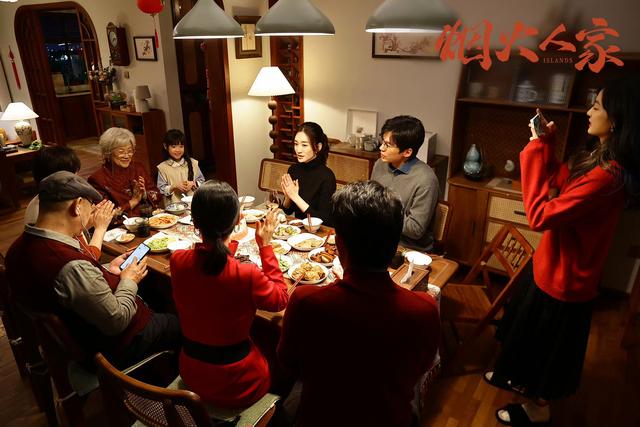
"Reunion" is always the most important key word in China during the Spring Festival. Going home for the New Year is where the heart belongs; Family reunion is the greatest happiness. The opening of the new drama "Fireworks Family" was also placed in the scene of "reunion". Meng Jia’s elder sister is preparing the New Year’s Eve dinner in the kitchen, and the second and third children come back with their families one after another. In a joyous atmosphere of welcoming the New Year, Meng Jiazu’s story of Sun San’s generation laughing or rushing is written.
On the fourth day of Lunar New Year’s Eve, Yang Xiaopei served as artistic director and chief producer, and "Fireworks Family" starring Xu Fan, Sandra, Liang Jing, Li Xiaoran and Song Chunli officially appeared in CCTV-1 prime file and Tencent video. According to China Audio-Visual Big Data (CVB), the audience rating of the first broadcast of the drama broke 3, ranking first in the same period in China.
As the first "Shanghai production" in year of the loong to appear on CCTV 1, the drama constructs a family group image with realistic issues, which is produced by CCTV and Shanghai Xixi Film Industry and funded by Shanghai Cultural Development Foundation. See the narrative of home again on the screen, which is also a set of home-related stories broadcast by CCTV during the Spring Festival holiday after "In the World".
To know and understand China is inseparable from the observation and analysis of "home"
The story revolves around Meng Jiazu’s female generation in Sun San-Qiao Haiyun, her three daughters with different personalities, Meng Mingwei, Meng Yuqing and Meng Yi ‘an, and the daughters of three sisters. After experiencing problems and puzzles such as family, marriage and love, they support each other, grow up separately and seek the true meaning of home together.
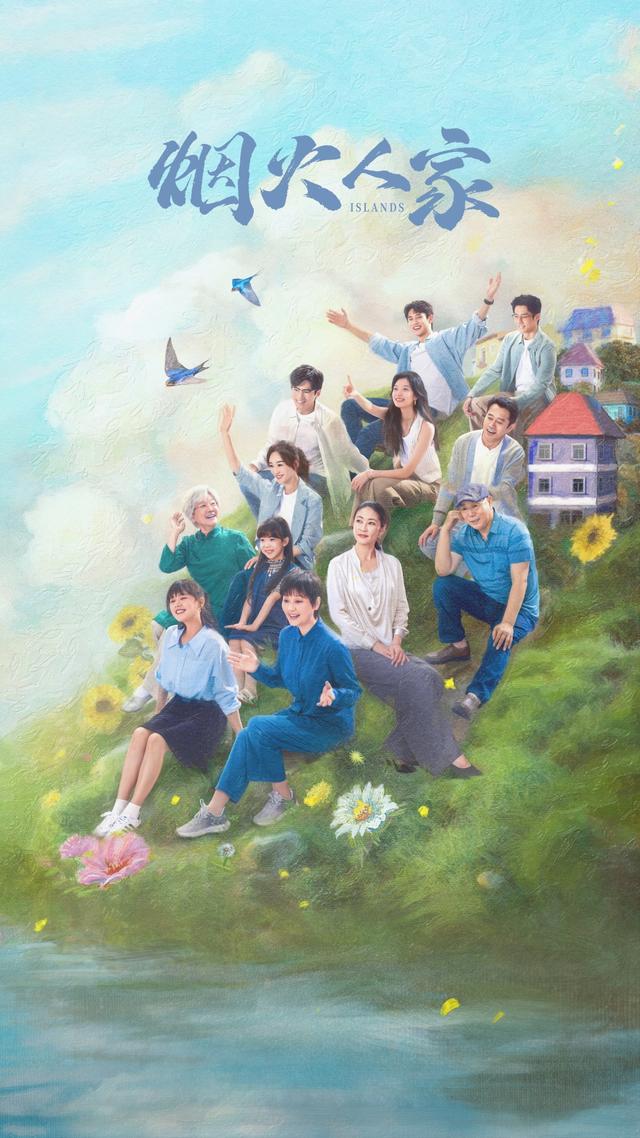
According to Yan Wei, deputy director of the Research Department of China Television Art Committee, the vivid display of family from different aspects in domestic dramas can often find spiritual harmony and emotional resonance with the audience in China, and family narrative has become one of the basic narrative types formed in the creation and development of domestic dramas over the years. "In recent years, the social repercussions caused by a series of plays, such as The World, Glory of My Father, Children of the Qiao Family, have repeatedly confirmed the irreplaceable important position of this narrative type in drama creation and the profound cultural consensus formed in the hearts of the audience. The "Fireworks Family", which has just started broadcasting, is another family story that rises from the fireworks in the world, which makes people feel comfortable and warm and has the power to be good. "
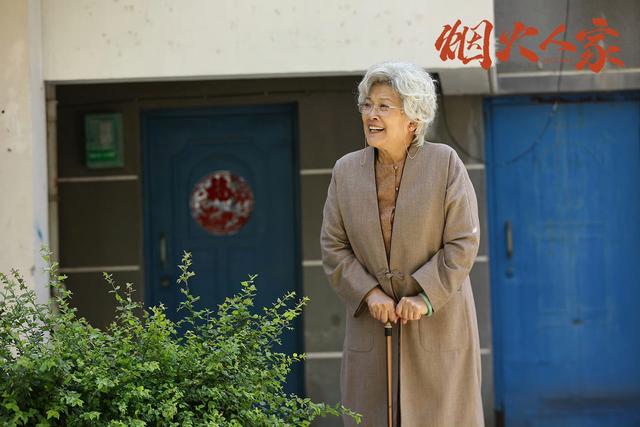
Taking women’s feelings as the breakthrough point, the bright spot of Fireworks Family lies in that the creator meticulously describes the psychology, emotion and even life situation of urban women with different faces in dealing with the relationship between family and career. Meng Mingwei, the eldest brother, is sensitive to inferiority and looks forward to her daughter becoming a phoenix, which leads to tension with her daughter Li Yijin, but she finally realizes that keeping a proper distance is the right way to maintain the relationship between mother and daughter. The second child, Meng Yuqing, and her daughter, Tao Shuna, talk about everything, but they find more aspects of each other in a more detailed life. The process of re-understanding each other is also a process of re-viewing themselves; Meng Yi ‘an, the third child, is independent and strong, seeking a balance between career and family, and gradually understanding her busy mother in the process. The three generations of women in the Meng family have their own livelihood and temperament, and each has its own wonderful and difficult situation. They are independent but dependent on each other, and actively face up to the problems brought by life.
In China people’s philosophy of life, there may be quarrels between families, and there are many disappointments in street life, but home is always a warm harbor for everyone, and blood is always thicker than water. Just like Meng’s three generations of mothers and daughters, they are marching on different tracks of life, career and ideal pursuit, like branches extending in different directions, experiencing rain and wind, and also feeling the nourishment of the sun, but whenever they are rooted.
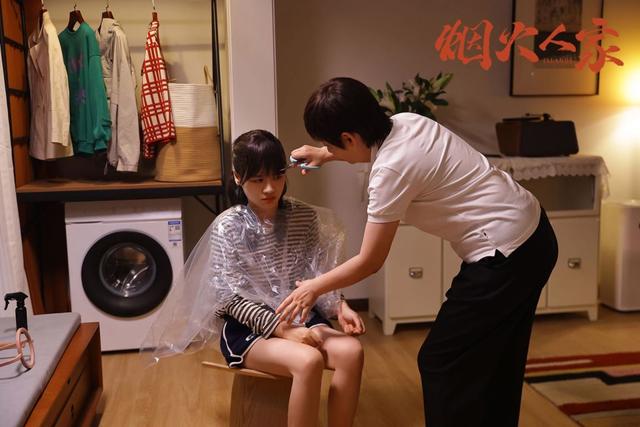
"We interpret family group images with arc lights of different characters, and outline the upward’ symbiosis’ family concept from point to surface. They watch and help each other and go with love, which is also the structure of the family. " Yang Xiaopei said that the main creation focuses on practical issues such as intergenerational communication, parent-child relationship, balance between career and family, and hopes that the warmth of family will become the source of courage for more people to overcome life problems.
Taste the true meaning of life in complexity and disorder, and see the clean personality.
In the real society, the "people can’t be torn apart" is pursued. Only by doing the opposite in the screen story can the audience see themselves and all beings.
The Fireworks Family takes a family as a sample and describes three generations of women as the protagonists in detail, which requires courage and knowledge for the playwright. In fact, urban women of every age are full of life stories to be explored, such as career hardships, rocky reefs in love, intergenerational conflicts in family, and social physical and mental exhaustion … The play tries to sort out the true meaning of life in the chaos and lead to a clear personality from the complexity, and several typical female characters have made some audiences feel a real sense of bringing in and resonating.
For example, in the opening scene, in the face of the rule that the whole family must go home for reunion every Spring Festival set by Qiao Haiyun, the seemingly most honest Li Yijin suddenly broke the tradition and went to her boyfriend’s house for the New Year. The different reactions caused by this abnormal behavior on each member of the extended family were real and meaningful after being dramatized, which made people feel immersive.
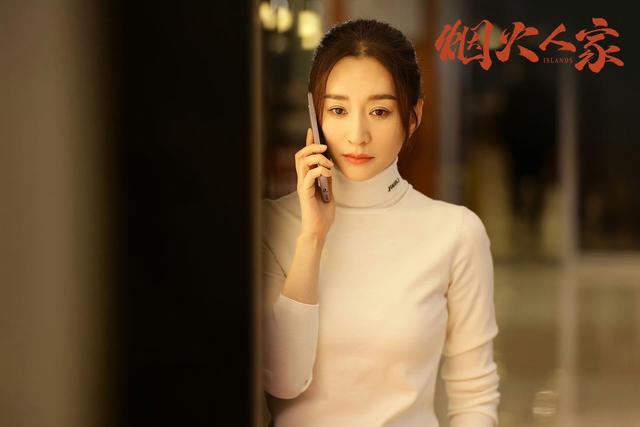
In recent years, the reason why domestic dramas are keen on shaping female group images lies in the fact that many urban women are at the intersection of career, life, love and various social relations. Different types of female images in the dramas can cover and reflect social phenomena and social problems to a great extent, so that more viewers can go deep into the plot, thus satisfying some women’s imagination and expectation of themselves to varying degrees, and enabling them to mirror, reflect and reshape themselves from some typical artistic independent women samples. In this regard, the personality growth of several female characters in Fireworks House, as an invisible clue throughout the whole play, is not only the soul core of the work, but also the spiritual sustenance of the audience.
From a certain point of view, women are often the "anchor needle" of the family, which determines the happiness of the family. Song Chunli, Xu Fan, Liang Jing, Li Xiaoran, Sandra, Qian Sun and other actors created a family of three generations of women, who completed their fate trajectory under their own personality identification, and different life landscapes were condensed in the spiritual field of a big family.

The story of Meng Jiazu’s Sun San generation is getting better and better, and it goes hand in hand with many lines. The creators strive to complement each other, and love, reason and things are integrated. On the basis of ensuring the necessary complexity of the plot, the traditional Chinese virtues such as benevolence, honesty, self-improvement and tolerance and the national spiritual concept of "home and everything" are subtly stitched together. In the presentation and expression full of modernity, the bottom of Fireworks House is the core essence of Chinese excellent traditional culture after all.
Author: Wang Yan
Text: Wang Yantu: Stills Editor: Jiang Fang Editor: Xing Xiaofang
Please indicate the source when reprinting this article.
Reporting/feedback